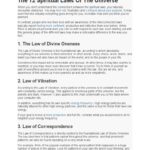Understanding Medication Management and Pill Organization
Precise management of medication is paramount to health, especially when you have several medications to take at different times of the day. One of the key strategies in medication management is investing in a reliable pill organizer, which helps prevent toxicity or overdosing from taking too many pills or harmful drug interactions.

The Role of Pill Organizers
Pill organizers come in various types and formats. From the basic plastic weekly organizers to advanced electronic pill dispensers with alarms, they cater to different needs. The choice rests on the user's preferences, their condition and the complexity of their medication schedule. Regardless of type, their primary goal is to aid patients to stick to their medication regimen and prevent any dosage errors.
Consequences of Medication Errors
Though seemingly harmless, taking an excess dose of medication can have significant effects on one's health. Cases of individuals accidentally taking a double dose of their medication, for instance, can lead to detrimental health complications, such as increased side effects and health risks, depending on the medicine in question.
Navigating Thyroid Medication with Meals and Snacks
When it comes to thyroid medication, a series of factors must be considered to ensure maximum drug efficacy. Knowing the right timing, interaction with other drugs, and the effectiveness of sticking to the same medication brand cannot be overemphasized.

Timing of Medication Intake
Thyroid medications are best taken on an empty stomach, either before breakfast, or at least four hours after the evening meal. A general guideline recommends waiting for about 45 to 60 minutes before eating in the morning or taking it at night at least four hours after the last meal.
Interactions with Other Medications and Foods
Certain medicines, like antacids, calcium supplements, cholesterol-lowering drugs, and iron supplements, may affect how thyroid hormone works in the body. Therefore, it's critical to take them four hours before or after taking thyroid medication. Foods high in calcium and soy products may also affect medication absorption.
Consistency in Brand and Dosage
Switching brands or generics without consulting a healthcare provider may affect medication effectiveness. Thus, maintain the same brand of medication. Also, it's crucial to take consistent doses of thyroid medication and to avoid excessive intake that may lead to side effects such as fatigue, bone loss, and irregular heartbeat.
Exploring Levothyroxine and Its Uses
Levothyroxine is a popular medication used to manage hypothyroidism. A synthetic form of the thyroid's primary hormone, thyroxine (T4), this drug possesses impressive effectiveness when maintained at the correct dosages.
Interactions, Side Effects, and Overdosing
Like any other medication, levothyroxine has a set of side effects, common ones being rapid heart rate, insomnia, fatigue, hair loss, and weight loss. It's important to remember that certain foods and other medications can interfere with its absorption, requiring a diligent intake schedule.
Overdosing on levothyroxine can have grave consequences, resulting in symptoms such as irregular heartbeat, headache, anxiety, and confusion. Therefore, one must follow the prescribed doses accurately. For overweight individuals wishing to lose weight, using levothyroxine without a prescription can be dangerous and potentially fatal.
Taking Extra Doses of Blood Pressure Medication
Following the correct medication schedule is essential in blood pressure management. Accidental intake of an extra dose close to the regular dosage time may risk potential side effects and even severe complications. Any medication errors call for immediate medical consultation.
Administering Thyroid Medication at Night
Unfailingly taking thyroid medication the same way every day is essential for its efficacy. This medication should ideally be taken on an empty stomach for maximum absorption. Hence, taking it at bedtime, at least three hours after dinner, is a suitable option for many.
Ensuring Optimal Absorption
It's important to note that certain substances may interfere with the absorption of thyroid medication, hence our guidance on timing. However, regular blood tests are a must to monitor hormone levels and adjust medication dosages accordingly.
Now that you are equipped with this knowledge, managing your medication schedule can be a breeze, ensuring better health and a good quality of life!





